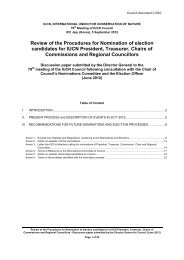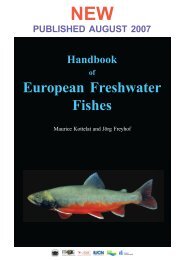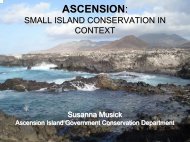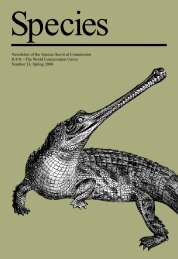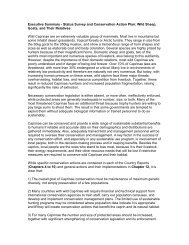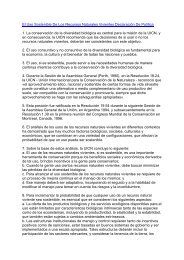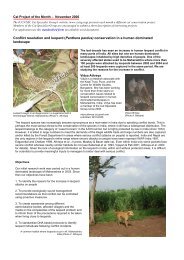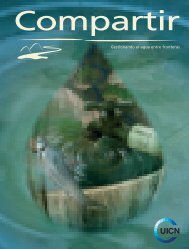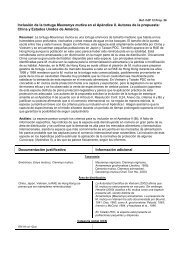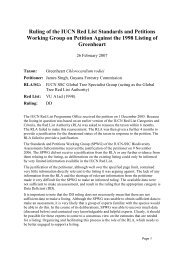Planning education to care for the earth - IUCN Knowledge Network
Planning education to care for the earth - IUCN Knowledge Network
Planning education to care for the earth - IUCN Knowledge Network
You also want an ePaper? Increase the reach of your titles
YUMPU automatically turns print PDFs into web optimized ePapers that Google loves.
Spain: coordination of environmental <strong>education</strong>The growth of EE activities has not been matched by an increase in publicparticipation; nor have citizens developed an interest commensurate with <strong>the</strong>problems in matters that affect <strong>the</strong>m directly such as water distribution andurban transport.The environment embraces all human activity and its cus<strong>to</strong>dy is in <strong>the</strong> handsof everyone. Global policies must <strong>the</strong>re<strong>for</strong>e be developed and all sec<strong>to</strong>rsinvolved. A strategy <strong>for</strong> EE is needed which will make it possible <strong>to</strong> transmit<strong>the</strong> necessary knowledge and awareness <strong>to</strong> different communities andencourage public participation.Coordination of environmental <strong>education</strong>The first Spanish convention on environmental <strong>education</strong> was held in 1983.It was <strong>the</strong>n acknowledged that EE was a dynamic area, with a widedistribution and variety of initiatives. EE continued <strong>to</strong> develop without anyplanning until 1987, when <strong>the</strong> second convention was held.Participants in <strong>the</strong> convention agreed on five objectives:• social awareness and evaluation must be seen from <strong>the</strong> globalperspective;• EE specialists should set high standards of professionalism andaccuracy in <strong>the</strong>ir work;• <strong>the</strong> role of <strong>the</strong> administration, as <strong>the</strong> focus of <strong>the</strong> global strategy inEE, is not just <strong>to</strong> solve problems, but also <strong>to</strong> lay emphasis on <strong>the</strong>positive values of <strong>the</strong> environment;• EE is <strong>for</strong> <strong>the</strong> entire population, not only <strong>for</strong> schoolgoers who havepreviously been at <strong>the</strong> centre of attention. Specific programmesshould be designed <strong>to</strong> cover all social groups; and• a global strategy should set guidelines so that work in EE is notisolated and is based on general principles.A programme of seminars, directed at professionals in various fields of EE(protected zones, institutional programmes, <strong>the</strong> <strong>education</strong> system, andenvironmental procedures), was established. Over four years, some 100professionals from institutions and from NGOs have participated in <strong>the</strong>seminars.The programme has created a network of relationships which now functionson its own, and which facilitates <strong>the</strong> work of all concerned. Seminar papersare <strong>to</strong> be published by <strong>the</strong> General Office on Environmental Policy whichfunded attendance at <strong>the</strong> meetings.Responsibility <strong>for</strong> administration of environmental questions rests with <strong>the</strong>regional governments in Spain. Conventions and seminars have been held at<strong>the</strong> regional level which have helped <strong>to</strong> establish <strong>the</strong> environmental121




